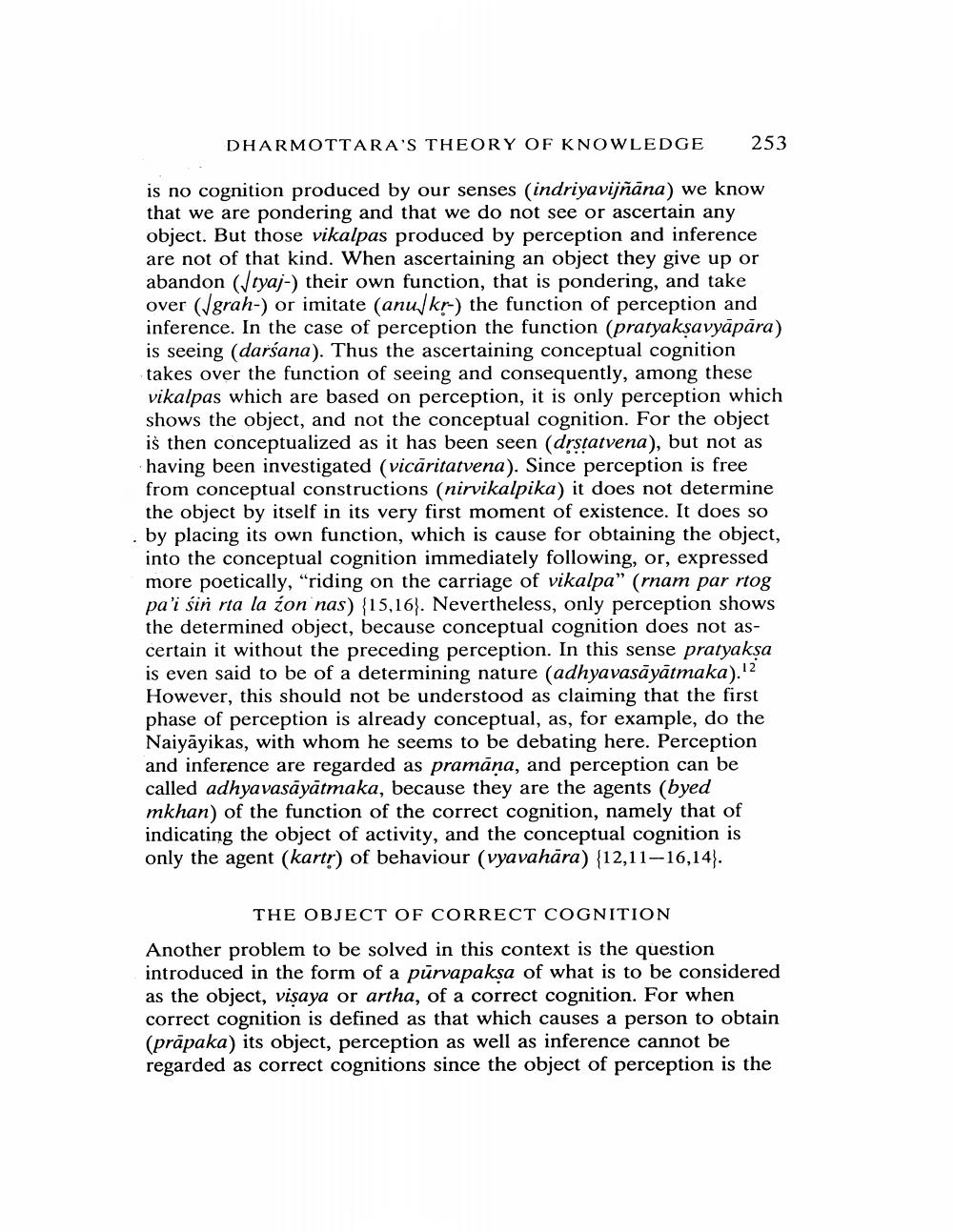Book Title: Dharmottaras Theory Of Knowledge In His Laghupramanyapariksa Author(s): Helmut Krasser Publisher: Helmut Krasser View full book textPage 7
________________ DHARMOTTARA'S THEORY OF KNOWLEDGE 253 is no cognition produced by our senses (indriyavijñāna) we know that we are pondering and that we do not see or ascertain any object. But those vikalpas produced by perception and inference are not of that kind. When ascertaining an object they give up or abandon (√tyaj-) their own function, that is pondering, and take over (grah-) or imitate (anu/kr) the function of perception and inference. In the case of perception the function (pratyakṣavyāpāra) is seeing (darśana). Thus the ascertaining conceptual cognition takes over the function of seeing and consequently, among these vikalpas which are based on perception, it is only perception which shows the object, and not the conceptual cognition. For the object is then conceptualized as it has been seen (dṛṣṭatvena), but not as having been investigated (vicăritatvena). Since perception is free from conceptual constructions (nirvikalpika) it does not determine the object by itself in its very first moment of existence. It does so by placing its own function, which is cause for obtaining the object, into the conceptual cognition immediately following, or, expressed more poetically, "riding on the carriage of vikalpa" (rnam par rtog pa'i sin rta la zon nas) (15,16). Nevertheless, only perception shows the determined object, because conceptual cognition does not ascertain it without the preceding perception. In this sense pratyakṣa is even said to be of a determining nature (adhyavasayatmaka).' However, this should not be understood as claiming that the first phase of perception is already conceptual, as, for example, do the Naiyayikas, with whom he seems to be debating here. Perception and inference are regarded as pramāna, and perception can be called adhyavasäyätmaka, because they are the agents (byed mkhan) of the function of the correct cognition, namely that of indicating the object of activity, and the conceptual cognition is only the agent (kart) of behaviour (vyavahāra) (12,11-16,14). THE OBJECT OF CORRECT COGNITION Another problem to be solved in this context is the question introduced in the form of a purvapakṣa of what is to be considered as the object, visaya or artha, of a correct cognition. For when correct cognition is defined as that which causes a person to obtain (prapaka) its object, perception as well as inference cannot be regarded as correct cognitions since the object of perception is thePage Navigation
1 ... 5 6 7 8 9 10 11 12 13 14 15 16 17 18 19 20 21 22 23 24 25
